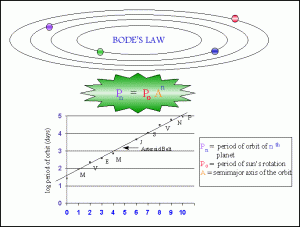Mar
30
2015
Biomed Central, a UK company that publishes 277 peer-reviewed journals, announced that it is retracting 43 articles because of “fabricated” peer-review.
Peer-review is a process that many scientific journals use to vet submitted articles. Typically an editor will review the article but also send it out to two or three experts in the subject matter and have them take a close look at the article to make sure everything is high quality. Most submitted articles will come back with required changes before acceptance. Of course many articles are rejected outright.
The process is not perfect, but it is one critical layer of quality control. The “peer-reviewed literature” is therefore a body of evaluated knowledge that has met at least a minimal standard of quality.
Of course, your mileage may vary. Not all peer-reviewed journals are as rigorous. Also, whenever there is any system in place to separate the wheat from the chaff, someone will try to game the system for their own advantage. There also needs to be some monitoring or policing in place to ensure the integrity of the system.
Continue Reading »
Mar
27
2015
 The existence of dark matter is one of the coolest science stories of my lifetime. When I was growing up I was in love with pretty much every field of science, but particularly with astronomy, and at that time we had no idea that 85% of the matter in the universe even existed. We now know that the astronomy I was so fascinated with was actually the study of 15% of the matter in the universe. If you count dark energy, which makes up 68% of the universe, then dark matter makes up 27%, and everything that we thought was the entire universe is actually only 5% of the universe.
The existence of dark matter is one of the coolest science stories of my lifetime. When I was growing up I was in love with pretty much every field of science, but particularly with astronomy, and at that time we had no idea that 85% of the matter in the universe even existed. We now know that the astronomy I was so fascinated with was actually the study of 15% of the matter in the universe. If you count dark energy, which makes up 68% of the universe, then dark matter makes up 27%, and everything that we thought was the entire universe is actually only 5% of the universe.
This story dramatically contradicts every crank and pseudoscientist who tries to tell you that scientists only support the status quo. In my lifetime we discovered 95% of the universe, without any prior theory telling us to expect this result. (Dark matter was hinted at in observations of galaxy rotation, but not generally accepted.) The discoveries were based on unexpected observations, that broke our models of how we thought the universe worked. Scientists met these new ideas with skepticism, but explored them further, and were slowly convinced by mounting evidence. Now dark matter and dark energy are generally accepted – because the evidence convinced the scientists. That is how science works, kids, so don’t believe the cranks.
Dark matter is a powerful idea, even though we currently don’t know what it is, because it not only explains observations that otherwise don’t make sense, it makes predictions. Predictions are the key to scientific progress. They provide the opportunity to test ideas against reality. If an idea does not make any testable predictions, right or wrong it’s just worthless. (Not even wrong.)
Continue Reading »
Mar
26
2015
 I have been a fan of professional football since my college days (go Pats) but I also recognize that it is a brutal sport prone to injuries. In recent years awareness of the true neurological risk of concussions, especially repeated concussions, has been increasingly coming to light. This may cause some cognitive dissonance among fans, players, and anyone involved with the NFL, including broadcasters.
I have been a fan of professional football since my college days (go Pats) but I also recognize that it is a brutal sport prone to injuries. In recent years awareness of the true neurological risk of concussions, especially repeated concussions, has been increasingly coming to light. This may cause some cognitive dissonance among fans, players, and anyone involved with the NFL, including broadcasters.
Recently Fox News published and article in which Dylan Gwinn writes:
Don’t look now, but concussions have become the new global warming: a debate where “consensus” trumps evidence, and heroes and villains are determined by their stances on an issue where the science is bogus at worst and murky at best.
This is classic FUD – fear, uncertainty, and doubt, the primary tactic of those who find reality not to their liking in some particular aspect.
Gwinn creates the classic false dichotomy between consensus and evidence. What if the consensus is based upon scientific evidence, and in fact the consensus of experts is the best way for non-experts to understand what the evidence actually says.
Further, all science is murky, at least to some degree. The clarity of a scientific conclusion exists along a spectrum from genuinely controversial to rock solid, but scientific evidence is always complex, subject to multiple interpretations, and incomplete. It doesn’t take much creativity to portray any scientific conclusion (even those at the rock solid end of the spectrum) as murky. Creationists are evidence of that.
Continue Reading »
Mar
24
2015
 A new study published in Science Translational Medicine concerning a possible new treatment for Alzheimer’s disease is getting quite a bit of play on social media. While it is an interesting study, and excitement over any scientific study is great to see, I also think it’s important to always put such studies into a reasonable context (which is rarely done well).
A new study published in Science Translational Medicine concerning a possible new treatment for Alzheimer’s disease is getting quite a bit of play on social media. While it is an interesting study, and excitement over any scientific study is great to see, I also think it’s important to always put such studies into a reasonable context (which is rarely done well).
Alzheimer’s disease (AD) is a devastating chronic degenerative brain disease in which neurons slowly die over years, causing memory loss of eventually overall cognitive impairment. Nancy Reagan described her husband Ronald’s AD as a “very long goodbye.” My grandmother died of AD, and it’s likely many of her relatives did as well, but in her it was confirmed at autopsy. About 75% of all dementia cases are due to AD:
The pooled data of population-based studies in Europe suggests that the age-standardized prevalence in people 65+ years old is 6.4 % for dementia and 4.4 % for AD.3 In the US, the study of a national representative sample of people aged >70 years yielded a prevalence for AD of 9.7 %.
In short, this is a common and serious disease. Most people will have a family member or know someone with AD. Further, as our population ages the incidence of AD will increase as a matter of course.
Continue Reading »
Mar
23
2015
 It seems that the regulation of supplements, homeopathy, and “natural” products in Canada is as bad as the US. The Canadian Broadcasting Corporation (CBC, the equivalent of NPR and PBS in the US) recently conducted a demonstration of just how worthless and deceptive the regulations are.
It seems that the regulation of supplements, homeopathy, and “natural” products in Canada is as bad as the US. The Canadian Broadcasting Corporation (CBC, the equivalent of NPR and PBS in the US) recently conducted a demonstration of just how worthless and deceptive the regulations are.
They created a fake treatment called “Nighton” which they claimed treated fever, pain, and inflammation in children and infants. They then applied to the government for a Natural Product License. On the application they checked all the appropriate boxes amd submitted as evidence copied pages from a 1902 homeopathic reference book. That was it. Five months later their fictitious product was approved as “safe and effective.”
What this means is that when the Canadian government approves a natural product as safe and effective, it is completely meaningless. It is essentially a license to lie to the public about a health product.
It is reasonable to assume that many if not most of the public, if they see a product on the pharmacy shelf with the label, “licensed as safe and effective for fever, pain, and inflammation,” with an official government issued product number, that some sort of testing and quality assurance was involved.
Continue Reading »
Mar
20
2015
 A recent Washington Post headline reads: Most stars in the galaxy have planets in the habitable zone, according to new research. Some version of this headline was attached to every mainstream media reporting on this story. Not just the headlines were this hyped – most of the time the reporting presented this new research as if this is an accepted conclusion.
A recent Washington Post headline reads: Most stars in the galaxy have planets in the habitable zone, according to new research. Some version of this headline was attached to every mainstream media reporting on this story. Not just the headlines were this hyped – most of the time the reporting presented this new research as if this is an accepted conclusion.
I have been following our exoplanet explorations since they began. Like many astronomy enthusiasts, I am particular interested in a few questions – how many planets do stars have on average, what are the typical arrangements of those planets, how typical or atypical is our own system, and how many earth-like planets are out there? We are starting to get a good idea of how many exoplanets are out there – most stars likely have multiple planets.
The other questions are still open at this time. While we are gathering more and more data points, with hundreds of systems now known to have planets, and currently 1,821 confirmed exoplanets. There are a couple thousand more possible exoplanets awaiting confirmation.
This may sound like a lot, but it really isn’t nearly enough data points to answer the remaining questions above. One problem is that we don’t have a thorough survey of each system. We are finding planets that are the easiest to find – those close to their parent stars, and larger planets. Small planets far from their stars would be almost impossible to find given current methods. They would not have a significant gravitational effect on their parent star, and even if they happened to transit their star they would probably have an undetectable effect on the light from that star. Also, with periods of hundreds of years, it would take hundreds of years to confirm them by the transit method.
Continue Reading »
Mar
19
2015
I was recently pointed to an excellent article by an Irish journalist, Jonathan McCrea, about homeopathy. He discussed the topic on his radio show, and was highly critical of the practice. In response a homeopath wrote in a letter complaining that the shows was too negative, and McCrea wrote a nice reply pointing out the scientific evidence. He quoted science-based medicine extensively, as well as systematic reviews.
It’s wonderful to see a science journalist who is not a scientist themselves do such a great job. As he explained himself in the reply, a good journalist will reflect the consensus of expert opinion. He also pointed out the dangers in medical nonsense and clearly understands his duty as a journalist when reporting on such issues – so good for him.
Here is the money quote from the homeopath:
What I would like to point out to your presenters is that never, in all their dismissal of homeopathy, do they seem to take into consideration the homeopaths who practice this particular brand of ‘heresy’ (heresy according to their own particular view of the world that is). If it is nonsense as they claim, then we are all either stupid, deluded or charlatans who take people’s money for something which we know does nothing. I may be many things but I am neither stupid, deluded nor a charlatan as anyone who knows me will verify. Neither are those thousands of doctors and vets who have changed from using conventional medicine to homeopathy. No homeopath or user of homeopathy comes to it from ‘belief’. We come to it from trying it, sometimes from curiosity, but often in desperation when other things haven’t worked. Then when we see it works we try it again. Then it works again and we try it more often, and it keeps working. Not every time, any more than antibiotics, or any other medicine works every time. But enough, more than enough to make us trust it.
This is a typical response – the appeal to anecdotal evidence. Clearly this homeopath does not understand the scientific position. She sets up an interesting forced choice straw man, that critics think homeopaths are either stupid, deluded, or charlatans. First, these are not mutually exclusive states. But then she equates these possibilities to using treatments which “we know does nothing.” That is a non-sequitur, however. If a homeopath is stupid or deluded then they don’t know that what they are using does nothing.
Continue Reading »
Mar
16
2015
On the SGU this week we interviewed Kevin Folta, who is a biotechnology scientist at the University of Florida. His specialty is strawberries – he is trying to identify which genes are responsible for the intense flavor of wild strawberry varieties. Some of this flavor was inadvertently lost over decades of cultivating strawberries to be big, attractive, and have a good shelf life. He sent me some of the wild varieties he is working with. They produce small (really small) unattractive strawberries that taste amazing. Ideally he would like to figure out how to combine the incredible flavor of some of the wild strawberries with the marketable cultivated varieties.
Kevin is also a science communicator. He does outreach to help the public understand his science, the science of plant genetics, which includes genetic modification. He is publicly funded and so all of his funding sources are fully disclosed. He has no funding from industry, no conflicts of interest.
However, because he is an outspoken critic of unscientific anti-GMO propaganda he has been targeted by the anti-GMO crowd. Their latest strategy is to go on a fishing expedition using freedom of information act (FOIA) requests. The anti-GMO lobby, of course, is not monolithic, and this is one group who is undertaking this approach – US Right to Know (funded by the Organic Consumers Association). They have issued FOIA requests to obtain all the e-mails of 14 senior biotech scientists.
Continue Reading »
Mar
13
2015
 This is something I thought would probably never happen – a science denier, in this case German virologist Stefan Lanka, was ordered by a court to pay 100,000 Euros to German doctor David Barden for meeting his challenge to prove that the measles virus exists.
This is something I thought would probably never happen – a science denier, in this case German virologist Stefan Lanka, was ordered by a court to pay 100,000 Euros to German doctor David Barden for meeting his challenge to prove that the measles virus exists.
Lanka is clearly, in my opinion, a crank, which is a specific flavor of pseudoscientist who makes sophisticated arguments to support a hilariously wrong conclusion. There is some major malfunction in their scientific reasoning. Typically, in my experience, they have an oversized ego and think they know better than the rest of the scientific community. For some reason an extreme narrative gets stuck in their brain, and they spend their career marshaling evidence and arguments to support a nonsensical idea. I find cranks endlessly fascinating because I think they are extreme cases that reveal major weaknesses in the operation of the human brain.
One favorite tactic of cranks and deniers is to issue an open challenge to prove what they deny exists. I think this strategy is inspired by the Randi Million Dollar Challenge, which is a legitimate challenge for anyone to prove a paranormal phenomenon. Randi has a specific process spelled out, with concrete criteria for success.
Hoax challenges are pure publicity stunts – they sound grandiose but typically are framed in such a way that the one issuing the challenge can wiggle out of ever having to pay. They are rigged from the beginning, mainly by not spelling out what kind of evidence would meet the challenge.
Continue Reading »
Mar
12
2015
 After Simon Singh was sued by the British Chiropractic Association for libel, he used the opportunity to rally for libel reform in the UK. Simon won his suit, but defending his free speech was tremendously expensive. Fortunately for him, he had the resources to go the distance. Libel laws in England are especially bad, favoring the plaintiff and are ridiculously expensive – so much so that they motivate “libel tourism” in which someone sues someone else specifically in England for maximal effect.
After Simon Singh was sued by the British Chiropractic Association for libel, he used the opportunity to rally for libel reform in the UK. Simon won his suit, but defending his free speech was tremendously expensive. Fortunately for him, he had the resources to go the distance. Libel laws in England are especially bad, favoring the plaintiff and are ridiculously expensive – so much so that they motivate “libel tourism” in which someone sues someone else specifically in England for maximal effect.
At the time I thought I was lucky for the fact that the US has more rational libel laws. The burden of proof is heavily on the plaintiff, as it should be. In the US we take our first Amendment rights to free speech seriously.
Then, of course, I was sued, and I realized how wrong I was.
The problem with libel laws in the US is that the legal battle is more about who has money than who is right. If you want to shut down someone’s right to free speech all you have to do is sue them for defamation. There is no barrier to doing so. The defendant then has the option of either taking down their blog post, article, podcast, whatever and giving in to the demands of the person threatening to sue them, or face tens of thousands or even hundreds of thousands of dollars in legal fees to defend their free speech. What do you think most people are going to choose?
Continue Reading »













